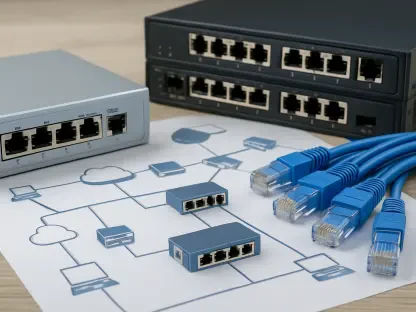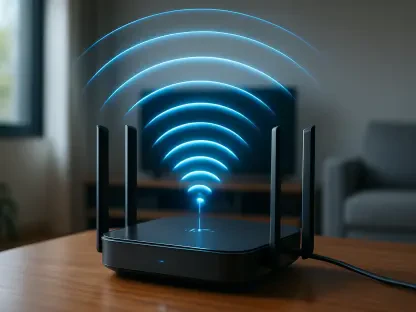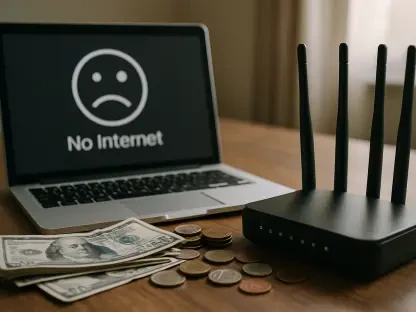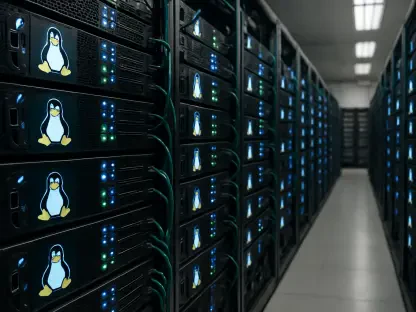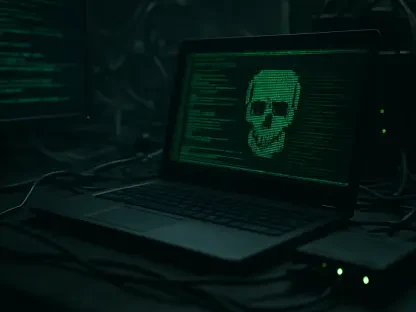In a mounting storm of controversy, EchoStar, the parent company of Dish Wireless, is grappling with intense criticism from contractors and vendors over unpaid bills linked to the ambitious buildout of Dish’s 5G network, a project central to its growth in the telecommunications sector. The crux of the dispute lies in EchoStar’s assertion of a “force majeure” event, pointing to an ongoing FCC investigation into its spectrum usage as an unforeseen barrier that justifies delaying or avoiding payments. This stance has ignited frustration among those who poured significant resources into the project, expecting compensation that has yet to materialize. Beyond the immediate financial fallout, this situation casts a shadow over the wireless industry, raising critical questions about corporate accountability, the reliability of business partnerships, and the role of regulatory bodies in mediating such conflicts. As legal battles loom and tensions rise, the broader implications for trust and stability in telecommunications are becoming increasingly apparent, setting the stage for a high-stakes showdown.
Corporate Tactics and Liability Debates
EchoStar’s approach to the financial woes of its subsidiary, Dish Wireless, has sparked heated debate within the industry, particularly under the stewardship of CEO Charlie Ergen. The company maintains that Dish operates as an independent entity, a position that effectively distances EchoStar from direct responsibility for the subsidiary’s mounting debts. This corporate structure has drawn sharp rebuke from industry analysts like Craig Moffett of MoffettNathanson, who argue that such a setup appears designed to safeguard EchoStar’s assets, especially with potential spectrum sales valued at over $40 billion on the horizon. The maneuver raises significant ethical concerns, as it could leave creditors with little recourse if Dish faces insolvency. This separation of liability not only challenges the principles of fair business dealings but also sets a troubling precedent for how parent companies might handle subsidiary obligations in times of financial distress, potentially reshaping industry expectations.
Further scrutiny reveals the strategic implications of EchoStar’s stance, as it navigates the delicate balance between protecting its financial interests and maintaining industry relationships. If Dish Wireless were to enter bankruptcy, the fallout could severely impact creditors who relied on EchoStar’s backing. Analysts suggest that this tactic might be a calculated gamble to prioritize spectrum sale proceeds over settling debts, a move that could alienate long-term partners. The legal ramifications are equally daunting, with questions arising about whether such asset protection strategies comply with creditor rights under corporate law. This situation underscores a broader tension in the telecommunications sector, where financial strategies often clash with the practical realities faced by contractors and vendors. As EchoStar holds firm on its position, the industry watches closely to see if this approach will withstand legal and ethical challenges, or if it will prompt a reevaluation of corporate responsibility standards.
Vendor Struggles and Financial Pressures
The ripple effects of EchoStar’s payment delays have hit vendors and contractors hard, spanning from major tower companies to smaller construction outfits integral to Dish’s 5G network rollout. Many of these businesses report being coerced into accepting substantial discounts on projects already completed and approved, a practice that has bred deep resentment. The financial strain is particularly acute for smaller firms lacking the resources to absorb such losses, threatening their very survival. A revealing letter obtained by Ken Schmidt of Steel in the Air highlighted EchoStar’s stark declaration that Dish Wireless is not entitled to any proceeds from upcoming spectrum sales, a statement that has only deepened vendor disillusionment. This breach of trust has led to a palpable erosion of confidence, with contractors now questioning the reliability of future engagements with both Dish and its parent company in an industry already fraught with risk.
Beyond the immediate financial hardship, the emotional and operational toll on vendors cannot be overstated, as many had banked on EchoStar’s anticipated revenue from spectrum deals to cover their invoices. The assumption that a company poised to gain billions would honor its commitments has been shattered, leaving contractors in a precarious position of uncertainty. This discontent is not merely about missed payments but also about the perceived betrayal by a corporate giant that seems to prioritize its bottom line over partnership obligations. As smaller players grapple with cash flow issues, some are forced to scale back operations or lay off staff, creating a domino effect throughout the supply chain. The broader lesson for the industry may lie in the need for more robust contractual protections and due diligence when partnering with large entities, a realization that comes too late for many already entangled in this dispute with Dish and EchoStar.
Regulatory Role and Spectrum Sale Implications
The involvement of the FCC adds a critical dimension to the unfolding drama between EchoStar and its contractors, particularly since the agency’s investigation into spectrum usage served as the basis for the controversial force majeure claim. With spectrum sales potentially worth over $40 billion awaiting FCC approval, the stark contrast between EchoStar’s prospective windfall and Dish’s unpaid debts has drawn significant attention. The regulatory body’s initial probe aimed to ensure that spectrum licenses are utilized by entities committed to deployment, yet it has inadvertently provided EchoStar with a rationale to delay payments. However, FCC Chairman Brendan Carr, recognized for his advocacy on behalf of the tower industry, may emerge as a pivotal figure in this saga. His potential to impose conditions on spectrum transactions could force EchoStar to address vendor obligations, offering a lifeline to those caught in the financial crossfire.
Delving deeper into the regulatory landscape, the FCC’s actions could set a precedent for how similar disputes are handled in the future, balancing corporate gains against the rights of smaller stakeholders. If conditions are attached to spectrum sales, such as mandating a portion of proceeds to settle outstanding debts, it could restore some faith in the system among contractors. Yet, the uncertainty surrounding the FCC’s final stance keeps vendors on edge, as approval without stipulations might leave them with little leverage. This scenario also highlights the broader challenge of regulatory oversight in fast-evolving industries like telecommunications, where policies must adapt to protect not just market competition but also the ecosystem of supporting businesses. As the FCC navigates its dual role of enforcer and facilitator, its decisions in this case will likely influence how corporate accountability is perceived, potentially reshaping the dynamics between large operators and their contractor networks.
Legal Hurdles and Stalled Negotiations
Legal entanglements have significantly complicated the path to resolution between EchoStar, Dish Wireless, and their aggrieved vendors, with lawsuits piling up as a testament to the deepening rift. Major players like American Tower have taken their grievances to court over unpaid invoices, turning what might have been business discussions into protracted legal battles. During a recent earnings call, CEO Charlie Ergen noted the shift in dynamics once disputes enter the judicial arena, where communication is filtered through legal representatives rather than direct dialogue. This adversarial environment stifles the possibility of swift settlements, as both sides become entrenched in their positions. The resulting impasse not only delays financial relief for contractors but also amplifies the uncertainty surrounding the future of Dish’s 5G network, leaving all parties in a frustrating holding pattern.
Moreover, the litigation landscape reveals the inherent challenges of resolving high-stakes financial disputes within the constraints of the legal system, where outcomes are often unpredictable and timelines extended. For vendors, the cost of pursuing legal action can be prohibitive, especially for smaller firms already struggling with cash flow due to unpaid bills. This disparity in resources further tilts the playing field, as EchoStar and Dish can leverage their legal teams to prolong proceedings, potentially wearing down less equipped opponents. The broader industry impact is a chilling effect on collaboration, as contractors may become wary of engaging with large operators without ironclad guarantees. As court cases drag on, the focus shifts from constructive negotiation to winning legal points, a trend that risks further damaging relationships and trust. Until a breakthrough occurs, either through settlement or judicial ruling, the standoff continues to cast a shadow over the operational and financial stability of all involved.
Path Forward Amidst Uncertainty
Reflecting on the tumultuous journey, the disputes between EchoStar and its contractors over Dish’s 5G network buildout have exposed deep fissures in corporate accountability and vendor relations. Legal battles with entities like American Tower have intensified, while smaller contractors bore the brunt of financial delays, often accepting reduced payments under duress. The FCC’s investigation, though aimed at ensuring spectrum utilization, became a contentious pivot for EchoStar’s force majeure defense, leaving vendors stranded amidst potential billion-dollar spectrum sales.
Looking ahead, a viable path forward hinges on regulatory intervention to bridge the gap between corporate strategy and creditor rights. The FCC, under Brendan Carr’s leadership, holds the potential to mandate conditions on spectrum transactions, ensuring that a portion of proceeds addresses outstanding debts. Additionally, fostering mediation outside the courtroom could ease tensions, allowing for practical solutions over legal brinkmanship. As the industry observes this unfolding saga, the emphasis must be on rebuilding trust through transparent commitments and equitable dealings, setting a stronger foundation for future collaborations in telecommunications.


